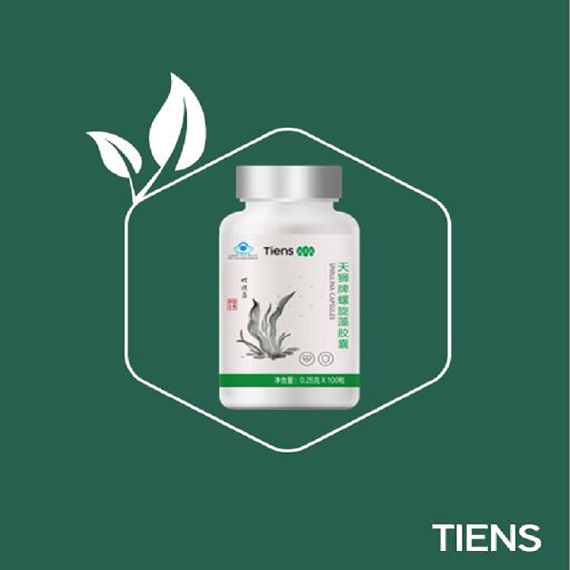
Spirulina and Menopause: A Potential Companion for Women’s Health
Spirulina and Meopaulse. Menopause is a significant phase in a woman’s life, marking the end of her reproductive years. This transition often brings about various symptoms such as hot flashes, mood swings, and decreased bone density. While hormone replacement therapy (HRT) is a common treatment, many women are turning to natural alternatives like spirulina to alleviate menopausal symptoms. This article explores the benefits of spirulina for menopause and how it can support women’s health during this transitional period.
Understanding Menopause
Menopause typically occurs between the ages of 45 and 55, signifying the end of menstrual cycles. The transition, known as perimenopause, can begin several years earlier and is characterized by fluctuating hormone levels, particularly estrogen and progesterone. Common symptoms include:
- Hot flashes and night sweats
- Mood swings and irritability
- Sleep disturbances
- Decreased bone density
- Vaginal dryness
- Weight gain
These symptoms can significantly impact a woman’s quality of life, leading many to seek effective management strategies.
Spirulina and Menopause: What is Spirulina?
Spirulina is a type of blue-green algae that grows in both fresh and saltwater. It has been consumed for centuries due to its high nutritional value and health benefits. Spirulina is rich in:
- Proteins: Contains all essential amino acids
- Vitamins: B-complex vitamins, vitamin E, and beta-carotene
- Minerals: Iron, calcium, magnesium, and potassium
- Antioxidants: Phycocyanin and chlorophyll
- Omega-3 and Omega-6 fatty acids
These nutrients make spirulina a powerful superfood with potential benefits for managing menopausal symptoms.
How Spirulina Supports Menopausal Health
1. Alleviates Hot Flashes and Night Sweats
Hot flashes and night sweats are among the most common and distressing symptoms of menopause. Spirulina’s high antioxidant content, particularly phycocyanin, can help reduce oxidative stress and inflammation, potentially alleviating these symptoms. A study published in the journal “Oxidative Medicine and Cellular Longevity” highlights the anti-inflammatory properties of phycocyanin, suggesting its role in reducing menopausal discomforts .
2. Enhances Mood and Reduces Stress
Mood swings, anxiety, and depression are often linked to hormonal fluctuations during menopause. Spirulina is rich in B-complex vitamins, which are essential for brain health and the production of neurotransmitters like serotonin and dopamine. These neurotransmitters play a crucial role in mood regulation, and adequate intake of B vitamins can help stabilize mood and reduce stress levels. According to research in the “Journal of Affective Disorders”, B vitamins are critical in managing mood and cognitive function during menopause .
3. Promotes Bone Health
Declining estrogen levels during menopause can lead to decreased bone density, increasing the risk of osteoporosis. Spirulina is an excellent source of calcium and magnesium, both vital for maintaining bone health. Furthermore, its anti-inflammatory properties can help reduce bone loss and support overall skeletal health. A review in the “Journal of Medicinal Food” discusses spirulina’s role in bone health, highlighting its mineral content and anti-inflammatory effects .
4. Supports Heart Health
Menopause increases the risk of cardiovascular disease due to changes in lipid metabolism and blood pressure. Spirulina contains omega-3 fatty acids, known for their heart-protective effects. These healthy fats can help lower cholesterol levels, reduce blood pressure, and improve overall heart health, making spirulina a beneficial supplement for menopausal women. Research published in the “Cardiovascular Therapeutics” journal emphasizes the cardioprotective effects of omega-3 fatty acids found in spirulina .
5. Boosts Immune Function
Menopausal women may experience a weakened immune system, making them more susceptible to infections and illnesses. Spirulina’s rich nutrient profile, particularly its high levels of antioxidants and vitamins, can strengthen the immune system, enhancing the body’s ability to fight off pathogens and maintain optimal health. The “Journal of Applied Phycology” notes spirulina’s immune-boosting properties, supporting its use during menopause .
6. Manages Weight and Improves Metabolism
Weight gain is a common concern during menopause, often due to hormonal changes and a slower metabolism. Spirulina is low in calories but high in protein, which can help promote satiety and reduce overall calorie intake. Its nutrients also support a healthy metabolism, aiding in weight management. A study in the “Nutrition and Metabolism” journal highlights the role of spirulina in weight management and metabolic health .
Spirulina and Menopause
How to Incorporate Spirulina into Your Diet
Spirulina is available in various forms, including powder, tablets, and capsules. Here are some easy ways to incorporate spirulina into your daily routine:
- Smoothies: Add a teaspoon of spirulina powder to your favorite smoothie for a nutritional boost.
- Juices: Mix spirulina powder into fruit or vegetable juices.
- Energy Bars: Look for spirulina-infused energy bars for a convenient snack.
- Supplements: Take spirulina tablets or capsules as a dietary supplement, following the recommended dosage on the packaging.
Conclusion
Spirulina offers a natural and nutrient-dense option for managing menopausal symptoms. Its wide range of health benefits, from alleviating hot flashes to supporting bone and heart health, makes it a valuable addition to the diet of women experiencing menopause. As with any supplement, it is important to consult with a healthcare provider before starting spirulina to ensure it fits into your overall health plan.
Incorporating spirulina into your diet can provide significant support during menopause, helping you navigate this transitional phase with greater ease and comfort.
Spirulina and Menopause
By integrating SEO strategies such as relevant keywords (e.g., “spirulina benefits for menopause,” “natural remedies for menopause,” “menopausal symptoms management”), this article aims to reach women seeking natural solutions for menopause management. Additionally, the structured format with clear headings and bullet points enhances readability and engagement.
References
- Oxidative Medicine and Cellular Longevity, “Anti-Inflammatory Properties of Phycocyanin in Spirulina”
- Journal of Affective Disorders, “The Role of B Vitamins in Managing Mood and Cognitive Function During Menopause”
- Journal of Medicinal Food, “Spirulina and Bone Health: A Review”
- Cardiovascular Therapeutics, “Cardioprotective Effects of Omega-3 Fatty Acids in Spirulina”
- Journal of Applied Phycology, “Immune-Boosting Properties of Spirulina”
- Nutrition and Metabolism, “The Role of Spirulina in Weight Management and Metabolic Health”


